9 Health Benefits of Drinking Lemon Water While Breastfeeding

Lemon juice tastes delicious and offers numerous health benefits. Drinking a glass of lemon water in the morning can refresh you and help you lose weight, too, by fighting body fluid retention (1). But if you are a breastfeeding mother, you might think twice before including lemon juice or lemon water in your daily diet. As a breastfeeding mother, you will have to be careful about the food choices you can make. If you follow a well-balanced diet, then you don’t have to stop eating your favourite foods just because you are breastfeeding. If you love drinking lemon water, we have some news for you. Lemon has plenty of nutritional benefits to offer to a breastfeeding mother. Read on to know whether or not you can drink lemon water or lemon juice while breastfeeding.
Is It Safe to Drink Lemon Juice While Breastfeeding?
Lemon juice is one of the healthiest drinks for a breastfeeding mom. If you are in your nursing phase, drinking lemon water during this time can help stimulate your body and help you feel rejuvenated. Having lemon water while breastfeeding can refresh you and boost your energy levels. Drinking lemon juice can also improve the blood circulation in your body, thus improving the quality of milk and keeping your baby happy and content.
Nutrients Present in Lemon Water
There are plenty of nutrients present in lemon water that make it a great drink to consume at any point of the day. Lemon water contains the following nutrients:
- Vitamin C
- Calcium
- Vitamin B
- Phosphorous
- Potassium
What Is the Recommended Daily Intake of Lemon Water for a Breastfeeding Mother?
While lemons can be consumed judiciously, you can start off by having around 1 tablespoon of lemon juice mixed with water. But you should avoid drinking lemon water or lemon juice if you notice any signs of allergy in your baby.
Benefits of Drinking Lemon Water During Breastfeeding
Drinking lemon juice or lemon water during breastfeeding can be very beneficial for your health. Lemon juice is packed with plenty of nutrients. If you don’t like drinking plain lemon water, you can add honey to lemon water and enhance its taste. Honey adds an element of sweetness to the mix and comes with its own energy-inducing nutrients, making it the perfect drink for a mom who is breastfeeding. Read on to know why you should drink lemon water.
1. May Prevent Stomach Problems
Drinking lemon water is generally good for digestion, and it can keep your baby’s stomach healthy, too (2). Lemon water can be easily prepared at home and can treat problems such as gas, acidity, cramps, irregular bowels, and bloating (3). These issues are fairly common among a lot of infants, and lemon juice can help reduce the onset of these.
2. Improves the Texture of the Skin
Lemon juice is a good source of Vitamin C, which is great for the skin as it has skin reparative properties (4). The Vitamin C content of lemon juice can enhance the texture of your skin. If you drink lemon juice regularly, your skin will be radiant, just like your baby’s skin.
3. May Help Flush Out Toxins From Your Body
Drinking lemon juice daily can assist in digestion and nutrient absorption. It can help flush out toxins from your body. It can even eliminate toxins that may be present in the milk and ensure that your baby receives healthy and pure milk.
4. Helps Regulate the Blood Pressure
Lemon water can help regulate blood pressure during breastfeeding. The high potassium content of lemon juice can keep you calm. It can also provide relief from nausea and dizziness.
5. Strengthen the Veins
Another very common issue faced by mothers during and after delivery is the presence of varicose veins. Bioflavonoid such as rutin, which are important nutrients found in lemon water, helps strengthen the walls of the veins. By having lemon juice daily, you can prevent the occurrence of varicose veins in the body.
6. May Provide Relief From a Sore Throat
If you have a sore throat during the breastfeeding period, then you can add a teaspoon of lemon juice to a glass of warm water, mix it well and drink for quick relief. Lemons are a great source of Vitamin C, which is essential for a healthy immune system. Drinking lemon water can strengthen your immune system and help your body fight infections (5).
7. Purifies the Blood
The best agent to purify your blood is lemon water. If you’re lactating, lemon juice will aid in purifying your blood and keeping it free of any infections.
8. Lowers the Risk of Breast Cancer
Limonene is a chemical present in the white membrane of the lemon. This chemical is known to have anti-tumour properties. Drinking lemon juice can thus lower the risk of breast cancer in a breastfeeding mother.
9. Improves the Overall Health of the Mother and the Baby
Lemon water is great for the overall health of both the mother and the baby. The vitamins and minerals present in it will help the mother regain strength and strengthen the immune system of the baby.
Side Effects of Lemon Water While Breastfeeding
Here are some possible side effects or disadvantages of lemon water while breastfeeding:
1. Gastric Issues
Citric acid from lemon can cause heartburn and other gastric issues like GERD or ulcers in worse cases.
2. Tooth Enamel Erosion
Lemon juice has high amount of citric acid because of which it tastes so sour. Excessive consumption of citric acid can result in erosion of the tooth enamel. Therefore, lemon juice for lactating mothers is advised in moderation, and it is always recommended to consume little water after drinking lemon juice or drink.
3. Allergy
Allergy to lemon is possible. It may exaggerate the existing respiratory issues like asthma just by inhaling of lemon peel scent (6).
Precautions to Take While Drinking Lemon Water During Breastfeeding
Here are some precautions breastfeeding moms might want to undertake for their optimal health while consuming lemon water while breastfeeding:
- Enjoy lemon water moderately. The best time to consume it in any form is in the morning and 30 minutes after meals.
- Use freshly squeezed lemon juice over powdered alternatives for better nutrition.
- Avoid hot water; use lukewarm or cold water to retain vitamin C.
- Don’t refrigerate half-cut lemons to prevent harmful microbes and nutrient loss.
- Make infused lemon water with cucumber, mint, and clean lemon slices. Store in an airtight bottle if needed.
- Consume lemon water early or refrigerate in an airtight bottle for short periods.
- Never store lemon juice in a copper bottle to prevent potentially toxic reactions.
FAQs
1. Does lemon water affect the nutritional content of breast milk?
Lemon water is super hydrating and refreshing with a dose of delightful vitamin C. It is also considered one of the milk supply boosters. Hence, no, it does not affect the nutritional content of breast milk. Instead, it helps with the supply.
2. Does lemon water help with morning sickness while nursing?
Yes, lemon water is great for a nursing mother’s digestive system. It helps eliminate digestive issues like bloating, gas, and irregular bowels (7).
3. Does lemon water have an impact on the baby’s weight or growth when breastfeeding?
No, lemon water does not in any way affect the baby’s weight or growth.
A Word of Caution
Lemon juice can be prepared in no time, and it tastes delicious, but you must look out for any signs of allergy in your baby after you drink it. Some babies do not take well to lemon juice as compared to others, so be careful and look for any signs of allergy in them. Consult a doctor if required.
Breast milk should ideally be the only source of nutrition for your baby up until he turns six months of age. Follow a healthy diet to ensure that there is enough supply of milk. Eat healthy foods and up your water intake. You can drink lemon juice, too, as it is refreshing and can keep you hydrated. However, please remember that there are limited scientific studies on the effect of lemon water on dehydration (8). If you notice any signs of allergy in your baby after drinking it, stop drinking it and consult a doctor!
References/Resources:
1. Fukuchi. Y, Hiramitsu. M, Okada. M, et al.; Lemon Polyphenols Suppress Diet-induced Obesity by Up-Regulation of mRNA Levels of the Enzymes Involved in beta-Oxidation in Mouse White Adipose Tissue; J Clin Biochem Nutr.; https://www.ncbi.nlm.nih.gov/pmc/articles/PMC2581754/; PubMed Central; November 2008
2. Valussi. M; Functional foods with digestion-enhancing properties; Int J Food Sci Nutr.; PubMed; https://pubmed.ncbi.nlm.nih.gov/22010973/; March 2012
3. Robinson. S; The Surprising Benefits of Hot Water and Lemon; Flushing Hspital Medical Center; https://www.flushinghospital.org/newsletter/the-surprising-benefits-of-hot-water-and-lemon/; April 2015
4. Pullar. J. M, Carr. A. C, Vissers. M. C. M; The Roles of Vitamin C in Skin Health; Nutrients; PubMed Central; https://www.ncbi.nlm.nih.gov/pmc/articles/PMC5579659/; August 2017
5. Gattuso. G, Barreca. D, Gargiulli. C, et al.; Flavonoid composition of Citrus juices; Molecules.; PubMed Central; https://www.ncbi.nlm.nih.gov/pmc/articles/PMC6149096/; August 2007
6. Citric acid and citrus allergy; American Academy of Allergy Asthma & Immunology; https://www.aaaai.org/allergist-resources/ask-the-expert/answers/old-ask-the-experts/citric-acid-citrus-allergy
7. Lemon water and breastfeeding; Bangladesh Breastfeeding Foundation; https://bbf.org.bd/lemon-water-and-breastfeeding/; December 2020
8. Ndikom. C. M, Fawole. B, Ilesanmi R. E; Extra fluids for breastfeeding mothers for increasing milk production; Cochrane; https://www.cochrane.org/CD008758/PREG_extra-fluids-for-breastfeeding-mothers-for-increasing-milk-production; June 2014
Also Read:
Green Tea during Breastfeeding
Apple Cider Vinegar while Breastfeeding
Fruits to Eat and Avoid while Breastfeeding
How to Detox While Breastfeeding and Is It Safe?
Was This Article Helpful?
Parenting is a huge responsibility, for you as a caregiver, but also for us as a parenting content platform. We understand that and take our responsibility of creating credible content seriously. FirstCry Parenting articles are written and published only after extensive research using factually sound references to deliver quality content that is accurate, validated by experts, and completely reliable. To understand how we go about creating content that is credible, read our editorial policy here.









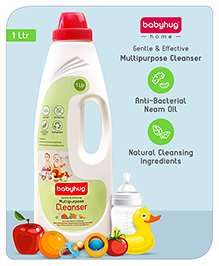
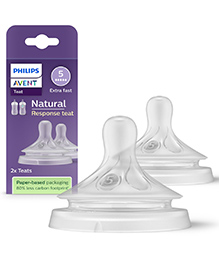
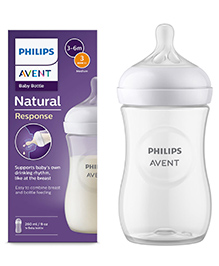
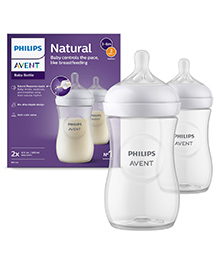

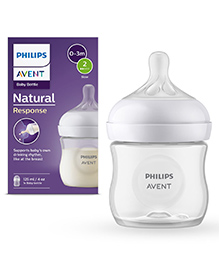









.svg)


















